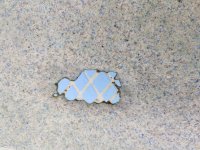I have a pool with stains on it (details in my sig). The stains are either copper, iron, or a combination of the two. Do I need the copper/iron/whatever to be removed prior to having the pool resurfaced? Or can they just put a new coating right on top of the current one, and there's no real risk of the stains bleeding through, or the stains contaminating the new water and causing new stains on the new surface? I'm thinking either a redo with simple plaster, or a pebble based coating.
Thanks in advance!
Thanks in advance!



